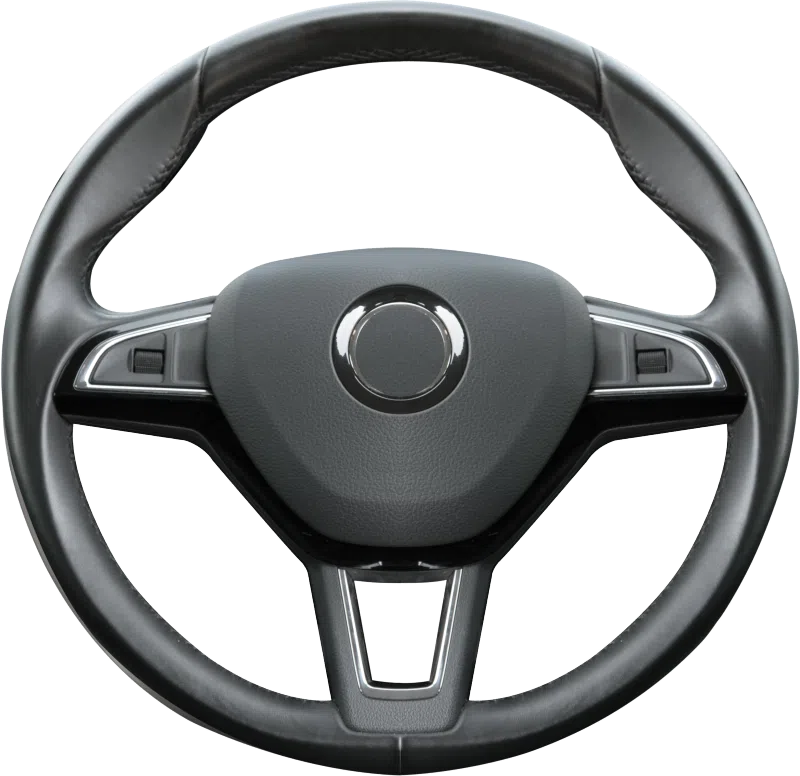Auto Insurance
Shopping for auto insurance doesn’t have to be stressful. At Brunt Insurance, we make the process simple and comfortable. Whether you’re new to insurance or just exploring better options, you’ll understand each option, and feel confident you have the best rate.
I Want to Find Out About…
Contact Us Today
Our team is here to make it easy and stress-free to find the right plan for your property. Give us a call and let’s get started!
(954) 589-2204 Send A MessageGet A Free Quote
Fill out this brief form and we’ll get back to you shortly.

OUR APPROACH
Car Insurance
Having good auto insurance lets you drive with confidence, and the agents at Brunt Insurance are here to find the plan that fits you best. We’ll take time to understand your needs and guide you through building a policy with the best value–no pressure, no confusion. We’re in your corner at every step, from quote to coverage.
Auto Insurance Terms to Know
Premium
Personal property is not as basic as years past. In today’s market money is being spent on electronics, televisions and computers. Our goal is to help you cover all of your valued belongings.
Liability Coverage
Liability coverage helps protect against unfortunate accidents that happen from time to time, which occasionally result in lawsuits. If someone is injured or property damage that you or your family may cause to other people on or way from your property could result in a lawsuit, liability coverage will help provide legal defense expenses and protect your assets. It’s also recommended that a Personal Umbrella Policy be put in place to protect higher amounts and additional accidents.
Medical Coverage
If a visiting friend happens to slip and fall, they may sue you for damages; guest medical coverage portion of your homeowner’s policy can reimburse your guest for the medical expenses and related costs as a result of their accident on your property. From emergency room visits, ambulance transportation and medical / surgical, your guest will be covered up to a certain amount.
Motor Vehicle Insurance Terms to Know
Whether you need coverage for your daily work commute, hauling kids and groceries, or recreational riding, here are some basic terms that apply to most policies.
Premium
The basic cost to have your insurance policy in place, whether or not you make any claims. Can be paid monthly, semi-annually, or annually.
Deductible
The amount you must pay out-of-pocket before the insurance company pays for a covered loss. For example, if you have a $500 deductible and $2,000 in damage, you pay $500 and your policy pays $1,500.
Liability Coverage
Covers bodily injury and property damage to others if you’re at fault in an accident. It doesn’t cover your own injuries or vehicle, but helps protect you from lawsuits and claims.
Collision Coverage
Covers repairs or replacement if your car hits another vehicle or object, regardless of fault.
Comprehensive Coverage
Covers damage to your vehicle from non-collision incidents like theft, vandalism, fire, weather, and other random risks.
Uninsured / Underinsured Motorist Coverage
Pays for your injuries and property damage if the at-fault driver has no insurance or insufficient insurance.
Medical Payments (MedPay) / Personal Injury Protection (PIP)
Covers medical expenses for you and your passengers, regardless of fault.
Policy Limits
The maximum amount your policy will pay for a covered claim. Often shown as split limits, e.g. “$100,000/$300,000/$50,000,” meaning $100,000 per person for bodily injury, $300,000 total per accident, $50,000 for property damage
Exclusions
Specific situations or items that are not covered by the policy. Common exclusions include intentional damage, racing, or using the car for commercial purposes (unless otherwise specified).
Personal Auto Policy
Personal vehicle insurance covers vehicles used for private, non-commercial purposes such as commuting, errands, and leisure travel. It typically includes liability, collision, and comprehensive coverage, and may also offer medical payments and uninsured motorist protection.
Policies are designed for individuals or families, not for business use. If a vehicle is used for work-related activities (like deliveries or transporting clients), personal insurance may not cover accidents or damages. Personal policies are generally more affordable, as they assume lower mileage and less risk than commercial use.
Commercial vehicle insurance is intended for vehicles used for business purposes—such as transporting goods, clients, or employees, or providing mobile services. This insurance is essential for businesses to protect assets, meet legal requirements, and avoid financial loss. Premiums are typically higher due to increased risk exposure and vehicle usage.
Commercial policies offer higher liability limits and specific coverages tailored to business risks, like:
Hired/non-owned auto coverage
Cargo insurance
Coverage for multiple drivers
Commercial Auto Policy
Motorcycle Policy
Motorcycle insurance shares many similarities with car insurance–such as liability, collision, comprehensive, and injury coverage–but includes some unique coverages and considerations specific to two-wheeled vehicles.
Motorcycle policy options:
Accessories and Custom Parts Coverage such as saddlebags, custom paint, and chrome
Roadside Assistance
Trip Interruption Coverage, to pay for lodging, food, and transportation if your bike breaks down far from home
Helmet and Safety Gear Coverage for helmets, gloves, and padded outerwear
A personal boat insurance policy is essential if you own a watercraft valued over a few thousand dollars, want liability protection, or regularly boat outside your home property. It offers peace of mind on and off the water, especially when your boat is in transit, docked, or moored.
A boat policy will cover Hull and Machinery (Physical Damage), Liability Coverage, Medical Payments, Uninsured Boater Coverage, Towing Assistance, and Personal Effects Coverage for fishing gear, safety equipment, and electronics.
Common Boating Policy Exclusions
Normal wear and tear
Damage from poor maintenance
Commercial use (e.g., charters, rentals)
Operating outside of navigational limits (e.g., offshore if not allowed)
Boat Policy
RV & Trailer Policy
RV (Recreational Vehicle) and travel trailer policies protect vehicles used for both transportation and temporary living. These policies cover a variety of RV types, including motorhomes (Class A, B, and C) and towable trailers like travel trailers, fifth wheels, and pop-up campers.
RV and travel trailer insurance ensures you’re protected both on the road and while parked, with options to cover personal property, travel interruptions, and extended stays. It goes beyond auto insurance to reflect the unique combination of driving and living that RVers enjoy.
Golf cart policies protect in case of accidents, damage, theft, or liability. You might overlook such coverage, but it’s especially important in Florida, where golf carts are frequently used in communities, on streets, and sometimes even in traffic.
Standard golf carts (max speed under 20 mph) do not require registration, insurance, or a driver’s license if used on private property or certain designated roads (typically 25 mph zones).
Low-Speed Vehicles (LSVs)—golf carts modified to go 20–25 mph—must be registered, titled, insured, and Florida law requires Personal Injury Protection (PIP) and Property Damage Liability (PDL) for LSVs.
Florida law requires Personal Injury Protection (PIP) and Property Damage Liability (PDL) for LSVs.
Many retirement and gated communities in Florida require proof of insurance to operate golf carts on their roads.
Golf Carts & More
Auto Insurance Carriers
These are the companies we work with to create our auto coverage policies.
You do the driving. We’ll navigate (finding the right insurance).
Get in touch with Brunt Insurance today and see how easy it is to get complete coverage with a great rate.
Get A Free Quote
